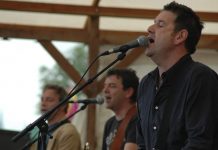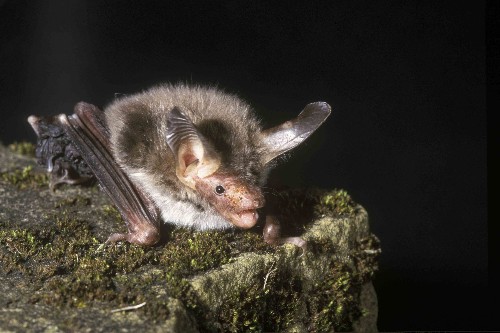Surveys by National Trust ecologists and volunteers have found that the Golden Cap area is used by 13 out of Britain’s 18 bat species, including some which are under threat and in decline.
Evidence has been found of Bechstein’s bats, grey long eared, barbastelle, and greater and lesser horseshoe bats amongst others, which are some of the rarest bats species in the UK.
There has been a widespread decline of bat species in Britain in the last century and the National Trust is at the forefront of conservation, working to ensure its buildings and countryside sites are bat and wildlife friendly.
In west and north Dorset, the National Trust and a team of dedicated volunteers are working with the Dorset Bat Group to find out more about the bats here, and how they are using the landscape. Ecology Officer, Gemma Baron, said: ‘The Golden Cap area is carefully managed by the Trust and their farm tenants to ensure it has some of the best habitat for wildlife, including bats. We were very excited to find evidence of the grey long eared bat which is one of the rarest bats in the UK and lives in very restricted areas of the country, and to recently be able to tag five Bechstein’s bats, which are a rare tree dwelling bat. There are thought to be just 1500 Bechstein bats in the UK as a whole.
‘The Golden Cap area is great for bats because of the fantastic patchwork of habitats found here. Grassland, woodland and scrub provide great foraging habitats, and are connected by an extensive network of old, traditionally managed hedgerows and small lanes which bats use to navigate. Old trees with natural holes and cracks, and old farm buildings also provide a range of roosting sites. Because of the low-intensity way the area is farmed and looked after, there are plenty of invertebrates for bats to eat.’
The ongoing survey and monitoring work at Golden Cap, largely led by volunteers, will ensure that the National Trust continue to manage the habitats and landscape appropriately for bats and other wildlife.
About the National Trust
The National Trust is a conservation charity founded in 1895 by three people who saw the importance of our nation’s heritage and open spaces, and wanted to preserve them for everyone to enjoy. More than 120 years later, these values are still at the heart of everything the charity does.
Entirely independent of Government, the National Trust looks after more than 250,000 hectares of countryside, 778 miles of coastline and hundreds of special places across England, Wales and Northern Ireland.
More than 24 million people visit every year, and together with 5 million members and over 65,000 volunteers, they help to support the charity in its work to care for special places for ever, for everyone.
For more information and ideas for great seasonal days out go to: www.nationaltrust.org.uk











